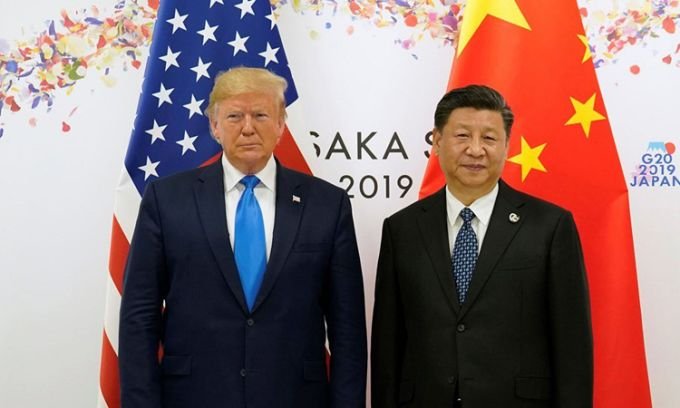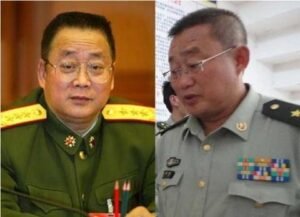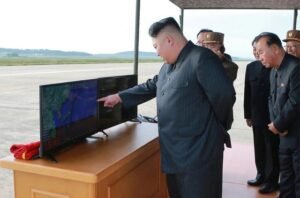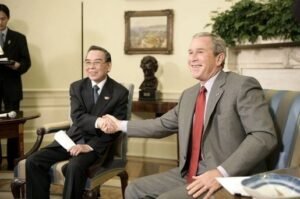
US - China 'generational wound' because of Covid-19 4
In March, a few days after Chinese Foreign Ministry spokesman Zhao Lijian expressed suspicion that the US military `brought nCoV to Wuhan`, US President Donald Trump responded by calling the new strain of virus a `virus`.
A week later, Trump no longer used this term when referring to nCoV, but his `blame China` strategy has not stopped.
China has repeatedly denied the accusations, saying that the moves from the Trump administration are part of the re-election campaign, aimed at raising Trump’s position in the eyes of Republican voters.
Not stopping at the war of words, the Trump administration is said to be planning to punish Beijing for Covid-19.
US President Donald Trump (left) and Chinese President Xi Jinping at the G20 conference in Osaka, Japan, in June 2019.
Before Covid-19 broke out, relations between the world’s two largest economies had become tense because of the persistent trade war, with `tit-for-tat` moves.
`The risks are much higher. In 2016, the problem was about people’s jobs, but now it’s about their lives,` he explained.
According to Shi Yinhong, a professor of international relations at Renmin University and an advisor to the Chinese government, relations between the two countries are now `at their lowest level since 1972`, when
According to CNN commentator Nectar Gan, Professor Thoi’s assessment is even more worrying when considering a series of serious incidents in US-China relations in recent years, such as the US mistakenly airstrike on the Chinese embassy in
`The US and China have entered a state of comprehensive competition and antagonism since the beginning of 2018. However, the Covid-19 pandemic is a serious blow to this relationship,` Thoi An Hoang said.
The decline in bilateral relations is said to have deepened the gap between public opinion of the two countries.
A similar situation is happening in China, where nationalism and xenophobia are on the rise.
`It’s clear that when there is hostility towards China from outside, the people of this country will turn towards nationalism more. They feel that their nation is being attacked and become extremely wary,` the teacher said.
As the number of new infections decreased in China and increased abroad, Chinese media praised the country’s success in fighting the pandemic, while also highlighting other countries’ mistakes in containment of Covid
`Despite some initial mistakes in Wuhan, the Chinese people are generally in agreement with the government’s epidemic response measures. The US government’s weakness serves as a mirror in contrast to a remarkable degree.`
In a recent speech on the occasion of the 101st anniversary of the May Fourth Movement, Chinese President Xi Jinping praised the role of young people in the fight against Covid-19, and called on them to `work hard.`
However, contrary to domestic praise, China is facing backlash from abroad for its handling of the pandemic, as well as growing pressure to open an independent international investigation into the matter.
Shi Yinhong, an advisor to the Chinese government, said that some Western powers have joined hands with Washington to blame Beijing for making mistakes in handling Covid-19, causing international relations problems.
To protect its image, Beijing has used a fierce diplomatic strategy called `wolf warrior`, named after the famous action film series, with a younger generation of diplomats demonstrating enthusiasm and loyalty.
China also sent masks, test kits and other supplies, as well as medical experts, to countries heavily affected by Covid-19.
`After the pandemic is over, the problems will still exist. The memory of the pandemic and its devastation is so deep that I fear the scars will be in the hearts of an entire generation,` Thoi






